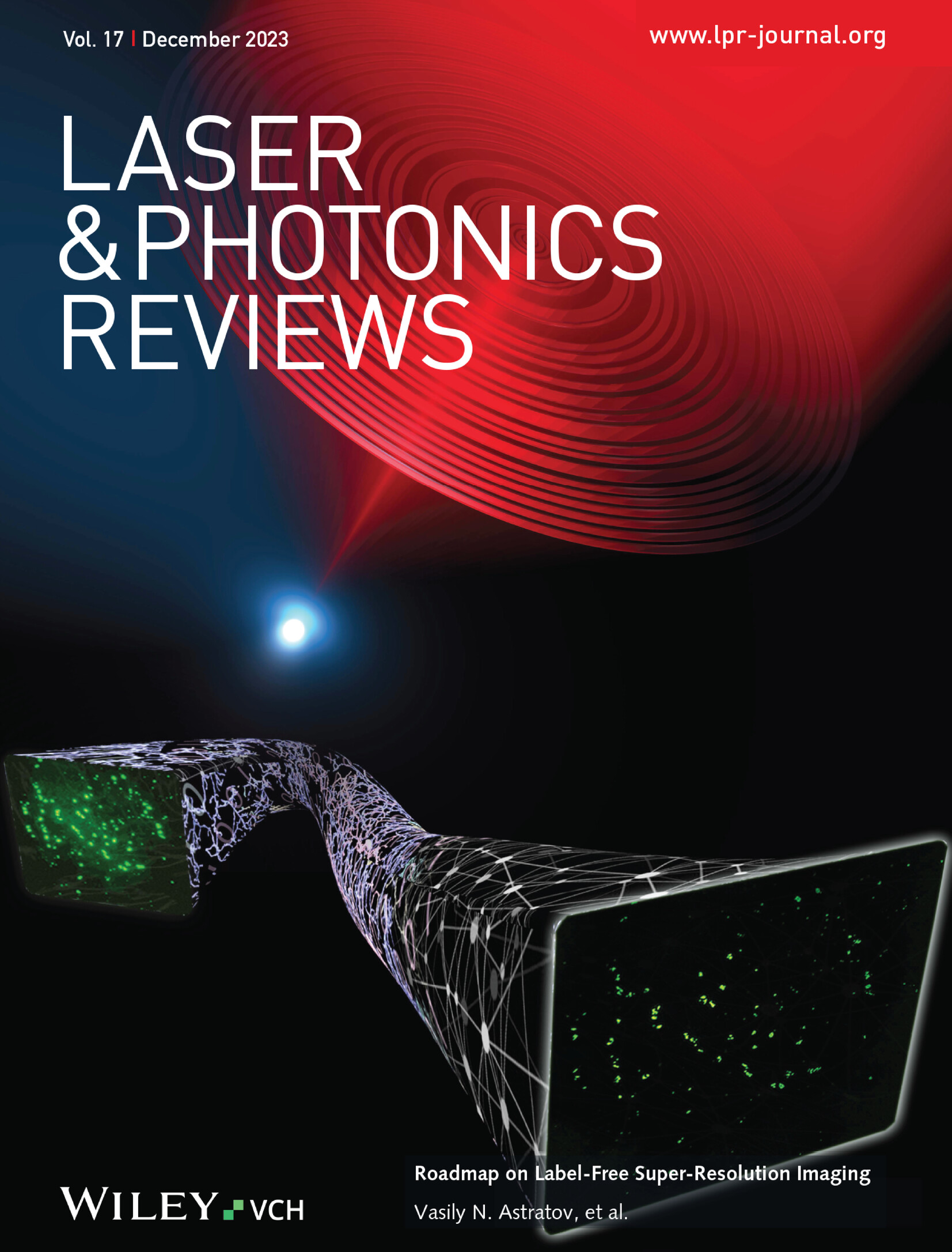米氏共振相变纳米粒子的可切换光学捕获
IF 9.8
1区 物理与天体物理
Q1 OPTICS
引用次数: 0
摘要
光学镊子彻底改变了对纳米级物体的操纵。通常,光学镊子的可调操纵依赖于调整捕获激光束或纳米粒子周围的光学环境。在这里,利用相变材料(二氧化钒或 VO2)制成的纳米粒子实现了可调谐和可切换的诱捕。通过改变捕获光束的强度,可诱导二氧化钒在单斜相和金红石相之间发生转变。根据纳米粒子的大小,它们会表现出三种行为之一:小的纳米粒子(在设置中,半径波长)在两种材料相中始终被激光束吸引,大的纳米粒子()始终被排斥。然而,在波长()的尺寸范围内,VO2 的相变会在吸引力和排斥力之间转换光学力,从而将它们拉向或推离光束中心。这种效应是可逆的,允许同一个粒子被反复吸引和排斥。这一现象是由纳米粒子的光学米氏模式及其在二氧化硅相变过程中的变化所决定的。这项工作为动态光学镊子提供了另一种解决方案,并为光学分拣、光驱动光学机械学和单分子生物物理学等新的可能性铺平了道路。本文章由计算机程序翻译,如有差异,请以英文原文为准。
Switchable Optical Trapping of Mie‐Resonant Phase‐Change Nanoparticles
Optical tweezers revolutionized the manipulation of nanoscale objects. Typically, tunable manipulations of optical tweezers rely on adjusting either the trapping laser beams or the optical environment surrounding the nanoparticles. Here, tunable and switchable trapping using nanoparticles made of a phase‐change material (vanadium dioxide or VO2 ) are achieved. By varying the intensity of the trapping beam, transitions of the VO2 between monoclinic and rutile phases are induced. Depending on the nanoparticles' sizes, they exhibit one of three behaviors: small nanoparticles (in the settings, radius wavelength ) remain always attracted by the laser beam in both material phases, large nanoparticles () remain always repelled. However, within the size range of , the phase transition of the VO2 switches optical forces between attractive and repulsive, thereby pulling/pushing them toward/away from the beam center. The effect is reversible, allowing the same particle to be attracted and repelled repeatedly. The phenomenon is governed by optical Mie modes of the nanoparticles and their alterations during the phase transition of the VO2 . This work provides an alternative solution for dynamic optical tweezers and paves a way to new possibilities, including optical sorting, light‐driven optomechanics and single‐molecule biophysics.
求助全文
通过发布文献求助,成功后即可免费获取论文全文。
去求助
来源期刊
CiteScore
14.20
自引率
5.50%
发文量
314
审稿时长
2 months
期刊介绍:
Laser & Photonics Reviews is a reputable journal that publishes high-quality Reviews, original Research Articles, and Perspectives in the field of photonics and optics. It covers both theoretical and experimental aspects, including recent groundbreaking research, specific advancements, and innovative applications.
As evidence of its impact and recognition, Laser & Photonics Reviews boasts a remarkable 2022 Impact Factor of 11.0, according to the Journal Citation Reports from Clarivate Analytics (2023). Moreover, it holds impressive rankings in the InCites Journal Citation Reports: in 2021, it was ranked 6th out of 101 in the field of Optics, 15th out of 161 in Applied Physics, and 12th out of 69 in Condensed Matter Physics.
The journal uses the ISSN numbers 1863-8880 for print and 1863-8899 for online publications.

 求助内容:
求助内容: 应助结果提醒方式:
应助结果提醒方式:


